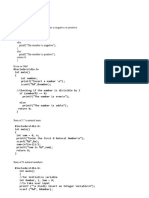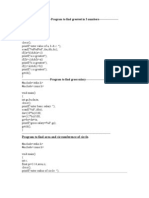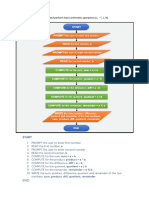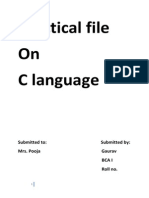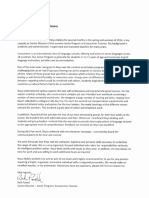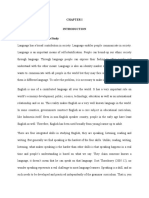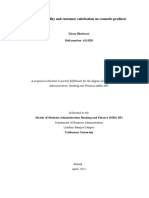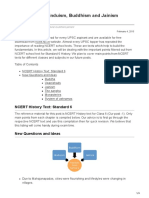0% found this document useful (0 votes)
6 views4 pagesC Programming Complete Revesion
The document provides comprehensive notes and programs on C programming, covering topics such as operators, types of errors, control statements, loops, recursion, and arrays. It includes example code for a calculator, algorithms for finding the largest of three numbers, and various recursive and iterative functions for printing numbers, calculating factorials, and generating Fibonacci series. Additionally, it demonstrates input/output operations and calculations on arrays.
Uploaded by
accn60061Copyright
© © All Rights Reserved
We take content rights seriously. If you suspect this is your content, claim it here.
Available Formats
Download as PDF, TXT or read online on Scribd
0% found this document useful (0 votes)
6 views4 pagesC Programming Complete Revesion
The document provides comprehensive notes and programs on C programming, covering topics such as operators, types of errors, control statements, loops, recursion, and arrays. It includes example code for a calculator, algorithms for finding the largest of three numbers, and various recursive and iterative functions for printing numbers, calculating factorials, and generating Fibonacci series. Additionally, it demonstrates input/output operations and calculations on arrays.
Uploaded by
accn60061Copyright
© © All Rights Reserved
We take content rights seriously. If you suspect this is your content, claim it here.
Available Formats
Download as PDF, TXT or read online on Scribd
/ 4







